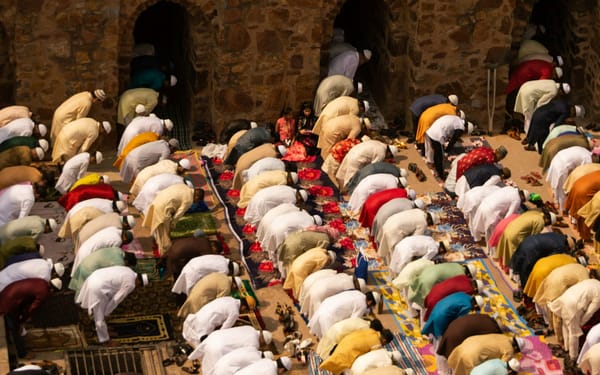The Principles of Islamic Finance

Many people want to invest to grow their wealth. But Muslims must invest in a way that's different from the conventional means. Islam has requirements set to guide you to a clear path — investment options included. Shariah law helps us make the right decisions and stay on the right path. The current banking system has a few financial elements that are haram to Muslims — interest, for instance. Hence, we've explored some principles of Islamic Finance, which can help you choose the best halal investment options.
Virtues of Islamic Finance
Wealth from an Islamic POV
Humans are designed to desire wealth. The desire must, however, have a boundary and must not be misused. Sustenance in Islam means Rizq. We believe that the Almighty provides Rizq for us to use for our family. This can either bring us closer to Him or lead us away.
Muslims are enjoined to see wealth via the lens of Islamic teachings. These teachings involve using wealth to benefit others and for spiritual growth. The concept of Rizq helps Muslims maintain gratitude and humility regarding wealth. It's easy to be consumed by wealth, but focusing on using the wealth for the cause of Allah will lead to financial contentment.
Halal earnings and responsible spending
Muslims live according to Islamic principles, and our financial life isn't an exception. Here's another principle of achieving your financial contentment in Islam. Your wealth must be earned and spent on things that are permissible in Islam.
We're encouraged to avoid income from haram sources like gambling, interest, illicit trades, etc. and embrace responsible spending and earning. Stinginess and extravagant spending should also be avoided. You must spend moderately and give a portion to your family and charity.
Charity
Charity is important to the Islamic Finance system. It's even one of the pillars of Islam, Zakat, which is an obligatory charity. Charity in Islam is a two-way reward. The receiver and the giver earn, even though the rewards are different. Giving out with the right intention helps to develop a sense of gratitude, empathy, and compassion.
Muslims are encouraged to give voluntary charity with the understanding that it doesn't decrease wealth but helps to purify and multiply. Also, the act of charity in Islam can offer protection from the effects of wealth, like materialism and arrogance.
Investing
Investing is a means of purchasing assets that will increase in value over a while. It's important to invest our wealth as Muslims for financial freedom. Money left in banks tends to devalue over time, especially due to economic inflation. Hence, it's necessary to put your money to use to maintain your wealth.
Islam aims at halal investment to ensure wealth safety without compromising religious beliefs. With an increase in wealth, we can spend on charity and families, ultimately investing in our afterlife.
Blessings
Divine blessings or Barakah is at the center of Islamic Finance. Barakah helps make earning more valuable and efficient. Seeking halal income helps Muslims to attract Baraka and experience great satisfaction. Barakah is also equivalent to the quality, quantity, and influence of wealth.
Likewise, Barakah exists in several forms, like meeting needs, being content, and seeking wealth positively.
Abundance
A mind filled with scarcity and poverty can affect your view about wealth — hence, thinking it's not enough. It can lead to poor financial decisions.
Islamic Finance principles
1. Sharing profit and loss
This is a principle of Islamic Finance that involves the partners sharing the profit and loss according to the parts played in the business. There's no guarantee on the rate of the returns that the Muslims will act as partners, not creditors.
2. Sharing risk
Risk sharing is encouraged by Islamic Finance principles. When more than one party shares the risk, the burden is divided and reduced among them. Thus, it will improve the economic transactions of society.
Muslims are prohibited from engaging in investments that lead to uncertain and unpredictable transactions. In Islam, both parties must have control over the business. Also, complete information must be shared between the parties so the profit and loss will be shared.
4. Gambling
Gambling in Islam is the accumulation of wealth via prohibited means. Avoiding conventional insurance products will protect Muslims from gambling. Islamic investment, however, works by involving multiple responsibilities on both parties.
5. Zakat
Zakat is a compulsory charity for all Muslims. It also allows the balanced distribution of wealth. For Islamic investments, Zakat is removed from the investor's account during Ramadan. Islamic Finance promotes this responsibility and distributes the assets among the society.
Bottom line
The principles of Islamic finance guide you in investing in an industry that will help you achieve the financial and social objectives that Islam has determined. They have been designed to make an economy successful. So, it is a way of saving your money from being invested in the wrong path.





